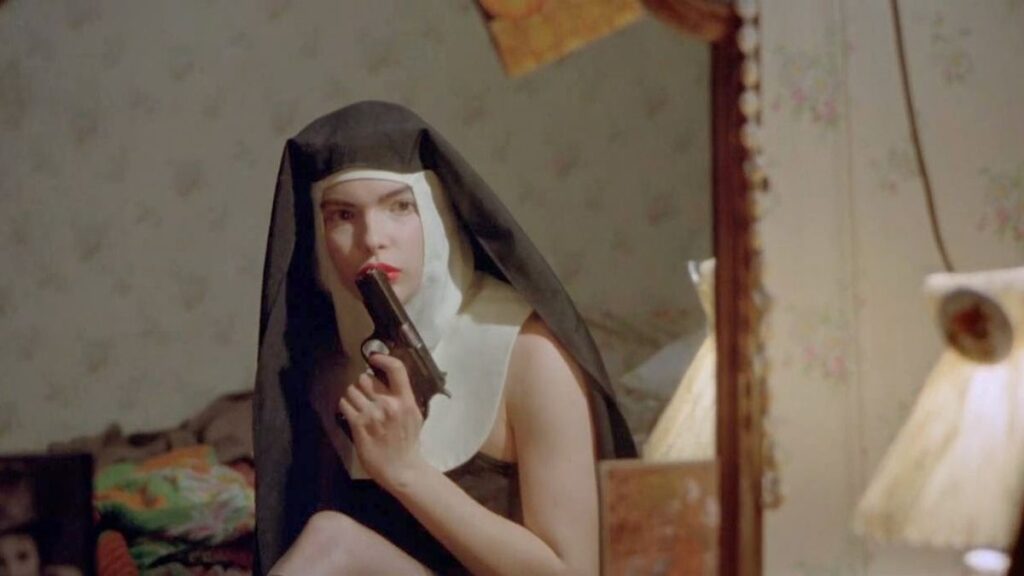
Ms .45 (1981) tells the familiar exploitation narrative about a woman who is raped several times in the course of a day and as a result begins killing would-be assailants in the most violent of ways. Sex becomes a tool for the women in director Abel Ferrara’s films to usurp power from male characters and in many cases dominate and manipulate situations (as evidenced in both Dangerous Game and New Rose Hotel).
However there is a sort of balance in Ferrara’s films. It’s not all about women utilizing their sexuality; Ferrara is equally interested in the sexuality of his male characters. The Harvey Keitel characters in both Dangerous Game (1993) and Bad Lieutenant (1992) are content and unthreatened by women in positions of objectification. But once these male characters engage in a sexual act with a woman they are humiliated or frustrated by their own performance, and sometimes cannot perform at all (Chris Penn in The Funeral).
In Ms. 45 men are content to objectify women yet cannot dominate their own sexuality where as women manipulate this objectification to realize their own desired reality. Both modes are toxic, and Ferrara seems to acknowledge this. Traditionally, Rape/Revenge films contain as much graphic sex and gratuitous nudity as possible, employing a variety of different shots. Ferrara, on the other hand, keeps his camera at a distance, fills the frame with as much shadow as possible, and doesn’t get close until Zoë Tamerlis has her grizzly revenge. The men in Ms. 45 are predators perpetuating an oppressive environment, the women are players, and Zoë Tamerlis is the great avenging angel.
Screenwriter Nicky St. John and Abel Ferrara’s Catholic background has more than a little to do with the political economy of Ms. 45 and lends a certain irony to the climax of the film. When Zoë Tamerlis (seventeen at the time) arrives at the costume party dressed as a nun and then begins to gun everyone down there is a major catharsis, for spectator and filmmaker alike.
